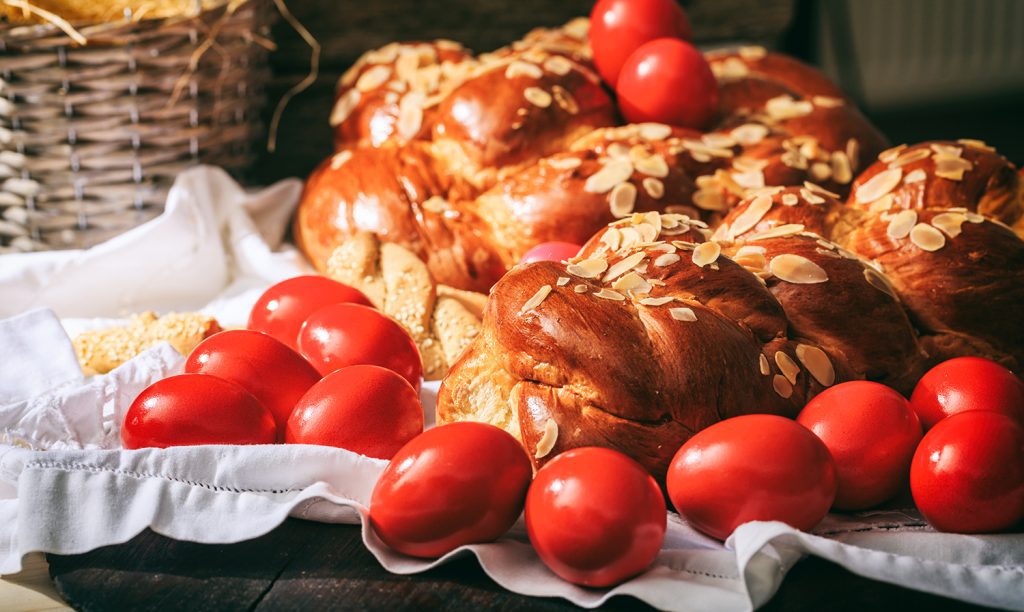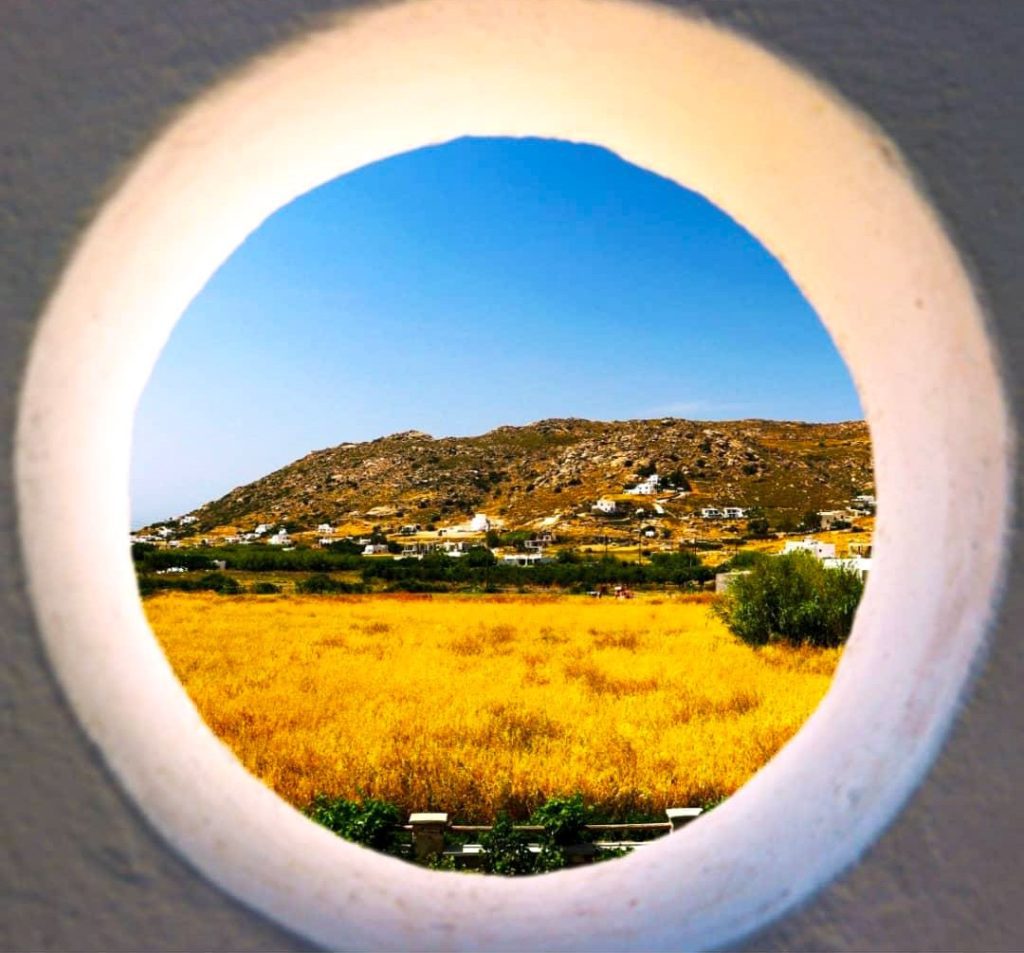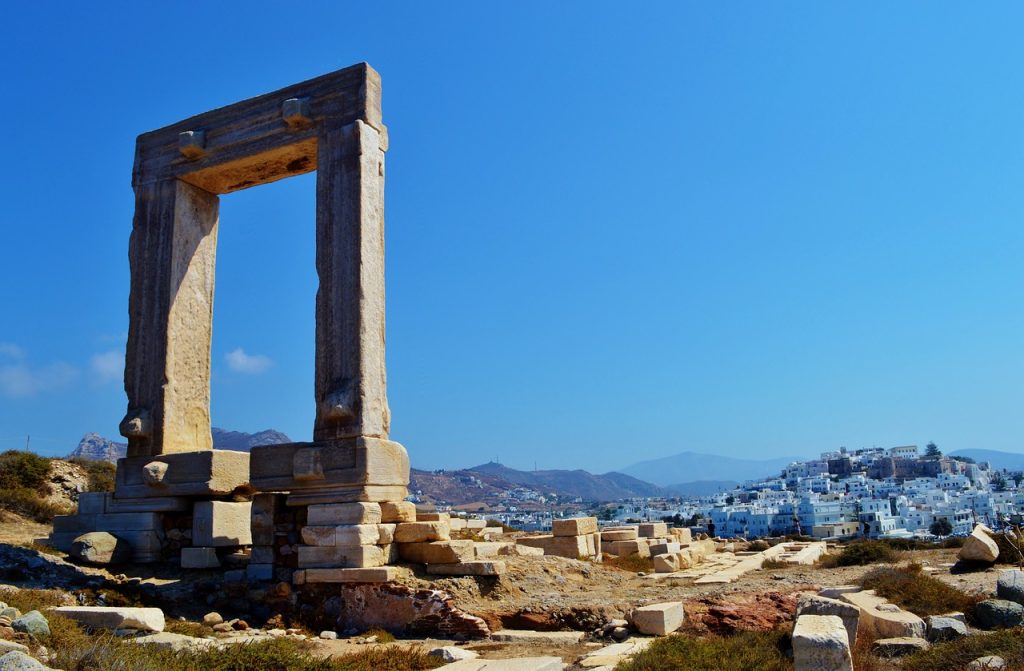Greek Orthodox Easter is probably the biggest celebration of the year for most Greeks, with a lot of special traditions and family gatherings. So, how do Greeks celebrate Easter?
If you can not be in Naxos during Easter, but you are curious, then read below what Greek Easter is about
40 days before Easter – fasting period
The preparations for the Greek Easter actually start from “Kathara Devtera” (Clean Monday) onward. All Greeks celebrate the national holiday “Kathara Devtera”, which is the last day of carnival and the first day of the so-called “fasting period”.
Take a look at the video, to get an idea what are the typical foods for celebrating Kathara Devtera
From that day onward till Easter people might greet you with “kali sarrakosti” (We wish you a nice 40 days!), since there are 40 days till the “holy week” (the week before Easter Sunday).
The “Holy Week”
The week before Easter Sunday, the Holy Week, begins on Palm Sunday.
Greek Easter is a very special and holy time indeed! Even for non-religious Greeks or foreigners, the atmosphere is nice and it is a part of the Greek culture and traditions.
There are church services everyday commemorating the last week in the life of Jesus Christ. The evening services are the most attended, except for Wednesday when the Service of the Holy Unction is held in the afternoon. On Thursday morning the service commemorates the Last Supper and the Betrayal of Christ.
This is the day that the hard-boiled eggs are dyed red, signifying the blood of Christ, and the Easter bread, called tsoureki, is baked.
The evening service on Thursday is a long one and features twelve gospel readings.
Meanwhile, people are shopping for their Easter gifts and buying their lambs of all sizes for Easter Sunday. Athenians who have family-connections to the islands and villages on the mainland are preparing to leave the city, as well as people with no family ties!
Good Friday
On Good Friday, the figure of Christ is taken down from the cross. The epitaphios , decorated with flowers by the girls through the night, is brought into the church. The bells of the church can be heard all over and all the flags in Greece are lowered to half-mast. In the evening a “funeral service” is held and at about 9pm the epitaphios is taken from the church and carried through the streets in a procession. Now everybody follows the epithaphios while carrying “beige” candles.
On Good Friday the candlelit funeral procession takes place in three churches (Mitropoli, Bantanesa, Agios Nikodimos) around 20.00-21.00 h.
The procession takes place all over the town, while (some) people also sing and afterwards the different “epitaphia” from various churches, are coming together on the main square
During the whole week till Saturday evening you can greet each other with the usual “Xronia Polla”, but also with “Kalo Pasxa” (Happy Easter) or otherwise “Kali Anastasi”. Just be careful when you want to translate the latter into English. (a nice Greek man wanted to translate it for some students in English and said: “Have a nice erection!” ( instead of “resurrection”!).
Easter Saturday
On Saturday the Orthodox Patriarch breaks the seal of the door of the tomb of Christ in the Church of the Holy Sepulcher in Jerusalem and emerges with the Holy Fire, which is then flown by Aegean or Olympic Airways, accompanied by high-ranking priests and government officials to Athens airport where it is met by an honor guard to the small church of Agia Anargyroi in Plaka (center Athens). From there the light is distributed to churches all over Attika and the rest of Greece.
At 11pm on Saturday night pretty much the entire Naxos is in church. The lights are turned off at midnight and the priest announces that Christ has arisen from the dead as candles (this day only white candles!) are lit. The tiny glow at the front of the church grows and soon the whole room is illuminated by the light of everyone’s candles. Exactly at midnight the priest sings the Paschal hymn:
“Christ has risen from the dead and in so doing has trampled on death and to those in the tombs he has given life”.
The church bells ring in celebration, fireworks go off, ships sound their sirens and the light and sound makes any European New Year celebration seem tame in comparison! People greet each other happily with the words Christos Anesti (Christ has risen) which is replied to with Alithos Anesti (Truly He has arisen).
Gunshots, dynamite and fireworks will be going on for the next 3 hours or more, with every year blowing off a finger or two! Just be careful!
Easter Sunday
Easter day, Sunday, is most people’s favorite day of the year. A lamb is roasted (or baked in the oven) and friends and families get together to eat, drink, talk and dance. And this is what we plan to do as well in Natura Villas, with family and friends.
So Greek Easter Sunday means eating Greek lamb, goat, kokoretsi, wine, tsoureki bread and cracking red eggs.









